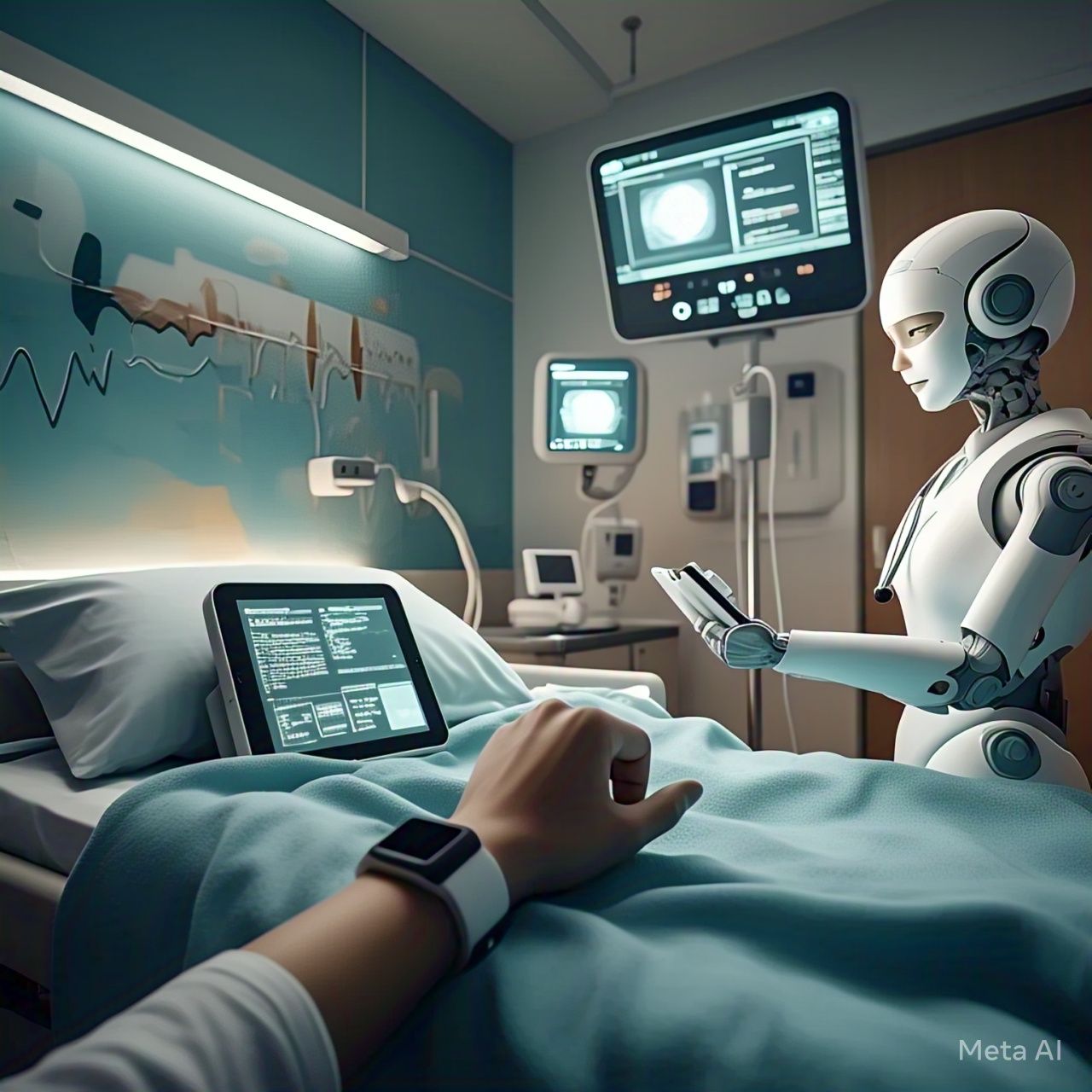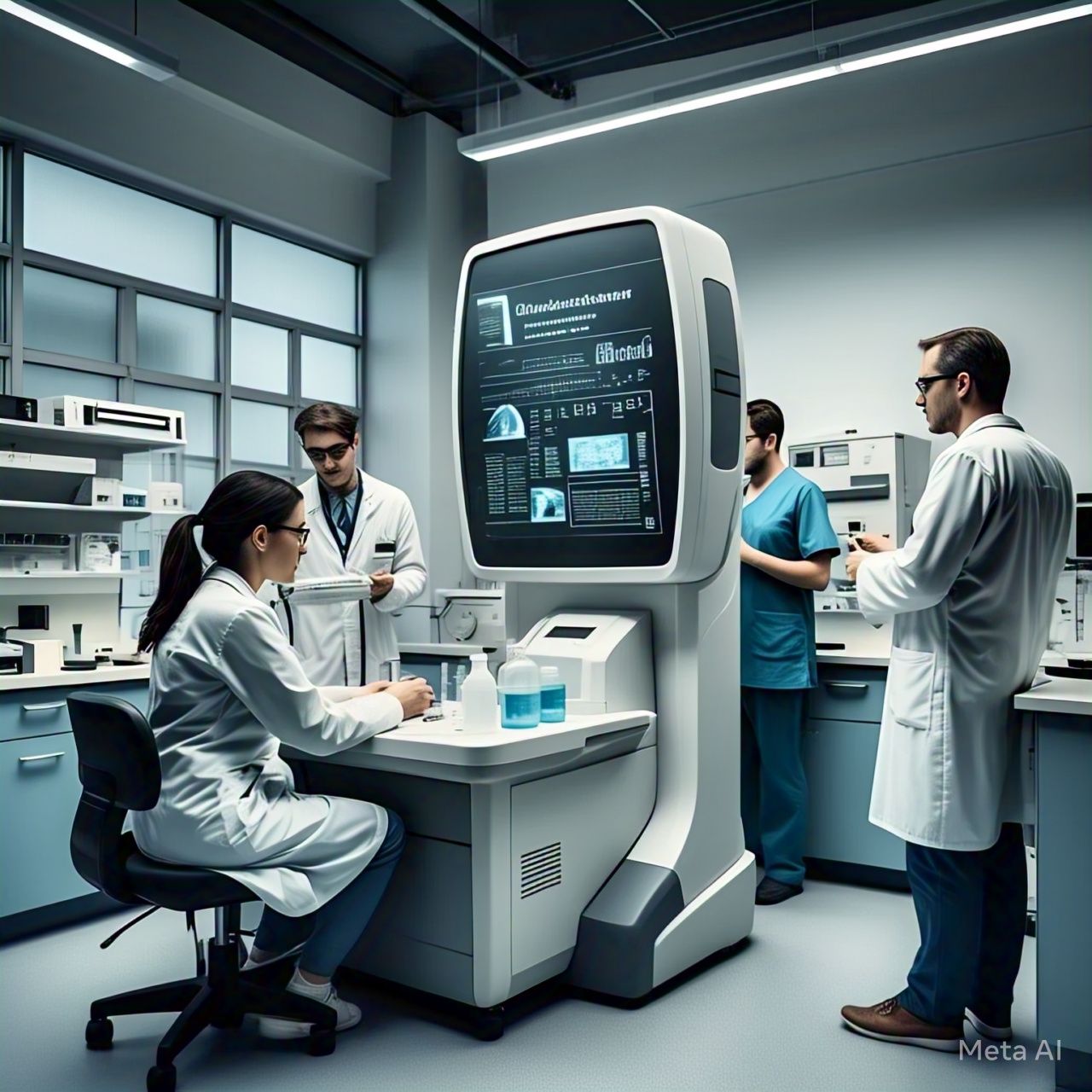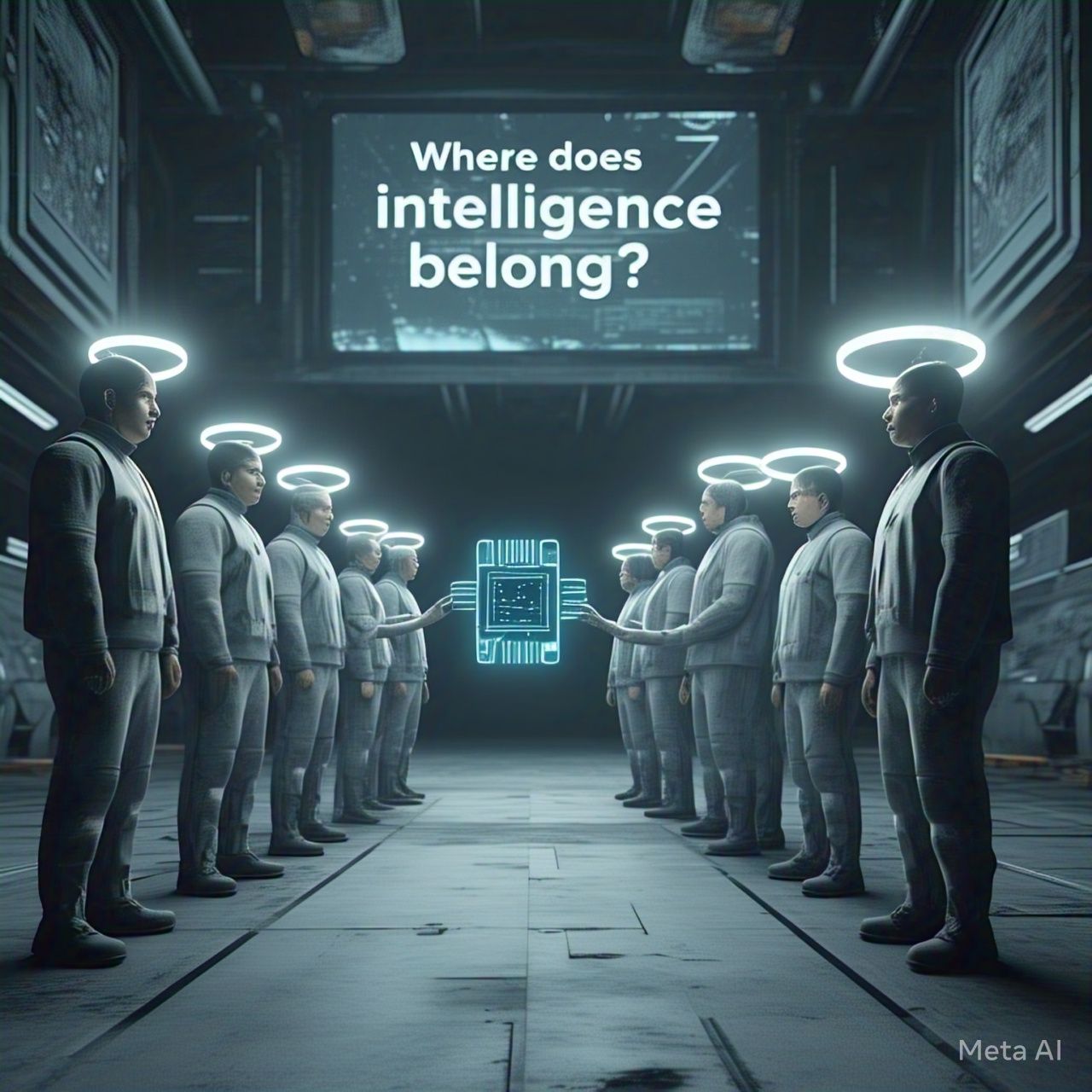Table of Contents
- Introduction
- The Role of AI in Modern Healthcare
- Key Technologies Powering AI in Hospitals
- Benefits of AI in Enhancing Patient Care
- Challenges and Ethical Considerations
- Real-World Applications of AI in Hospitals
- The Future of AI in Healthcare
- Conclusion
- FAQs
Introduction
Artificial Intelligence (AI) is transforming hospitals and healthcare facilities worldwide by improving diagnostics, streamlining workflows, and enhancing patient care. From predictive analytics to robotic-assisted surgeries, AI-powered technologies are reshaping medical treatment, increasing efficiency, and reducing human error. This article explores how AI is revolutionizing healthcare and its impact on hospitals and patient care.
The Role of AI in Modern Healthcare
AI in hospitals is designed to assist medical professionals in various aspects of patient care, including:
- Automated Diagnostics: AI-driven imaging tools and machine learning algorithms help detect diseases earlier and more accurately.
- Predictive Analytics: AI predicts patient deterioration, disease outbreaks, and hospital resource needs.
- Personalized Treatment Plans: AI customizes treatment strategies based on a patient’s genetic profile and medical history.
- Smart Hospital Management: AI optimizes scheduling, patient flow, and staff allocation.
- Virtual Assistants & Chatbots: AI-driven virtual assistants support patient inquiries and appointment scheduling.
Key Technologies Powering AI in Hospitals
1. Machine Learning (ML) & Deep Learning
- AI models analyze medical data to detect patterns and enhance diagnostics.
2. Natural Language Processing (NLP)
- AI interprets patient records, doctor notes, and medical literature for accurate treatment recommendations.
3. Computer Vision
- AI processes medical images from X-rays, MRIs, and CT scans to detect abnormalities.
4. Robotics & Automation
- Robotic surgery and automated medication dispensing improve precision and reduce errors.
5. Internet of Medical Things (IoMT)
- Connected medical devices track patient vitals and provide real-time monitoring.
6. Cloud Computing & Big Data Analytics
- AI processes vast amounts of patient data to enhance research and treatment protocols.
Benefits of AI in Enhancing Patient Care
1. Faster & More Accurate Diagnosis
- AI-powered imaging tools and diagnostic algorithms can detect diseases earlier and with greater precision than traditional methods.
2. Enhanced Patient Monitoring
- AI-based wearable devices monitor heart rate, oxygen levels, and glucose levels in real time.
3. Reduced Medical Errors
- AI minimizes human errors in medication dispensing, surgery, and patient care plans.
4. Optimized Hospital Operations
- AI streamlines administrative tasks, reducing paperwork and improving efficiency.
5. Personalized Treatment Plans
- AI tailors treatments based on a patient’s genetic and clinical data.
6. Improved Doctor-Patient Interaction
- AI handles routine inquiries, allowing doctors to focus on critical cases.
7. Early Disease Detection & Prevention
- AI-driven predictive models help identify patients at risk for chronic diseases like cancer and diabetes.
Challenges and Ethical Considerations
1. Data Privacy & Security
- Protecting patient data from cyber threats and ensuring compliance with regulations like HIPAA and GDPR is crucial.
2. Bias in AI Algorithms
- AI models can inherit biases from training data, leading to disparities in patient care.
3. Integration with Existing Systems
- AI adoption requires seamless integration with legacy hospital systems.
4. High Implementation Costs
- AI technology requires significant investment in infrastructure and staff training.
5. Regulatory Compliance
- AI-driven healthcare solutions must comply with medical laws and ethical guidelines.
Real-World Applications of AI in Hospitals
1. AI in Medical Imaging
- IBM Watson and Google’s DeepMind assist radiologists in detecting tumors, fractures, and other anomalies.
2. AI in Drug Discovery
- AI accelerates the development of new drugs by analyzing molecular structures and predicting outcomes.
3. AI-Powered Virtual Assistants
- AI chatbots like Ada Health and Babylon Health provide symptom analysis and medical advice.
4. AI in Robotic Surgery
- The da Vinci Surgical System enhances precision in minimally invasive surgeries.
5. AI in Predictive Healthcare
- AI models predict disease outbreaks and hospital resource allocation needs.
6. AI for Hospital Administration
- AI automates patient admissions, discharge planning, and electronic health record (EHR) management.
The Future of AI in Healthcare
The future of AI in hospitals is promising, with potential advancements in:
1. AI-Driven Precision Medicine
- AI will enable highly personalized treatment plans based on an individual’s genetics and lifestyle.
2. AI-Powered Remote Healthcare
- AI and telemedicine will facilitate remote patient monitoring and virtual consultations.
3. AI in Mental Health Care
- AI-powered tools will help detect early signs of mental health disorders and suggest treatment options.
4. Fully Automated Hospitals
- AI-driven automation will reduce human intervention in routine hospital tasks, leading to improved efficiency.
Conclusion
AI is revolutionizing hospitals by improving diagnostics, personalizing treatment, and optimizing healthcare management. While challenges exist, AI’s potential to enhance patient care and operational efficiency makes it a vital component of modern healthcare. As technology evolves, AI-driven healthcare solutions will become more sophisticated, ensuring better patient outcomes and streamlined hospital operations.
FAQs
1. How is AI used in hospitals?
AI assists in diagnostics, predictive analytics, patient monitoring, robotic surgeries, and hospital administration.
2. Can AI replace doctors?
No, AI enhances medical decision-making but cannot replace human expertise and empathy in patient care.
3. Is AI in healthcare expensive?
While AI implementation requires investment, its long-term benefits in efficiency and patient outcomes outweigh the costs.
4. What are the risks of AI in hospitals?
Challenges include data privacy issues, algorithm biases, high implementation costs, and integration difficulties.
5. What is the future of AI in hospitals?
AI will continue to advance in precision medicine, remote healthcare, mental health diagnostics, and hospital automation.
Table: Key Benefits of AI in Hospitals
| Benefit | Description |
|---|---|
| Faster Diagnosis | AI detects diseases early and with high accuracy. |
| Improved Monitoring | Wearables and AI-driven sensors track patient vitals in real time. |
| Reduced Medical Errors | AI minimizes human errors in drug dispensing and treatment plans. |
| Operational Efficiency | AI optimizes hospital resource management and scheduling. |
| Personalized Treatment | AI tailors therapies based on patient-specific data. |
| Predictive Healthcare | AI forecasts disease outbreaks and hospital resource needs. |
Citations:
- Smith, J. (2023). AI in Healthcare: Transforming Patient Care. Medical Tech Journal.
- Patel, R. (2022). The Role of Artificial Intelligence in Modern Hospitals. AI & Healthcare Reports.
- Chang, S. (2023). Machine Learning in Medical Diagnostics and Treatment Plans. AI & Medicine Review.




